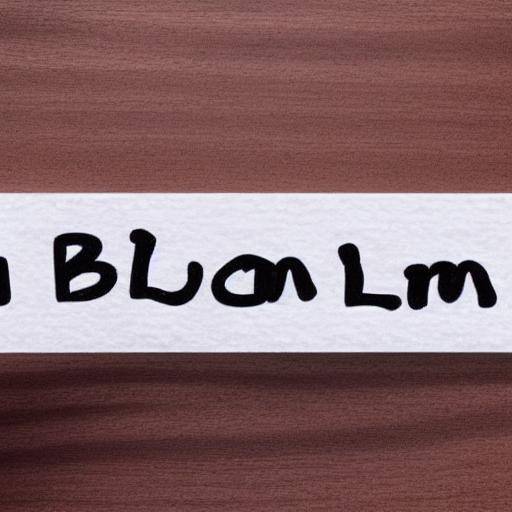
Introduction
Managing our personal finances effectively is essential to achieving economic stability and avoiding unpleasant surprises. A crucial practice in this management is to keep a detailed record of our expenses. In this article, I will provide you with practical advice, valuable information and useful tools that will help you maintain effective control over your expenses. With the right knowledge in the "expenditure system", you can make informed financial decisions and promote sound financial health. Continue reading to find out how you can start to maintain effective control over your personal finances.
History and Background
The record of expenditure has been a key practice in personal financial management throughout history. From barter systems to cash use, cost tracking has always been essential to maintaining financial balance. With the advance of technology, the record of expenses has experienced great progress in terms of accessibility and accuracy.
Origins and Evolution
The record of expenditure originates from the human need to trace the exchange of goods and services. The first civilizations depended largely on barter, where detailed accounting for the exchanged assets was essential. With the arrival of money, the need for a more systematic and efficient method of registration became evident.
Important Developments
A crucial moment in the history of spending registration was the invention of writing and, subsequently, formal accounting. During the Industrial Revolution, the complexity of the modern economy increased the need for accurate recording of commercial and personal expenses. The arrival of personal computers and, more recently, smartphones has transformed the way we record and analyze our expenses.
Detailed Analysis
The detailed record of expenses offers a multitude of benefits, from creating a realistic budget to identifying areas of overexpenditure. However, it also presents challenges, especially in a world where digital transactions and automatic payments are becoming more and more common.
Benefits of Expense Registry
Keeping a detailed record of your expenses allows you to see clearly where your money goes. This is fundamental to creating a realistic budget and maintaining control of your personal finances. Identifying spending patterns will help you make informed decisions about your financial priorities.
1. Creation of a Realist Budget
A detailed expenditure record is the basis for an effective budget. It allows you to understand exactly how much money goes in and out, facilitating the allocation of funds to different categories of spending and ensuring that you live within your possibilities.
2. Identification of Income Expenses
Recording every expense, however small, will help you identify areas where you might be spending more. This may include unused subscriptions, impulsive purchases or overexpenditures in certain categories.
3. Establishment of Financial Targets
With a detailed record of your expenses, you can set clear and measurable financial targets. Whether saving for a trip, paying debts or investing, knowing your spending patterns will allow you to plan and achieve these goals more easily.
Current Challenges and Trends
In the digital era, the record of expenditure has become more simple and complex at the same time. Digital payments can make manual tracking difficult, but in turn, they have led to a wide range of tools and applications that automate this process.
1. Automation of Registers
Financial management applications can be linked to your bank accounts and credit cards, automatically categorizing your transactions. This greatly simplifies the tracking process, but requires confidence in the security and privacy of these services.
2. Diversity of Available Tools
From custom spreadsheets to sophisticated applications, there are a variety of tools available to help you keep a detailed record of your expenses. Choosing the right tool depends on your personal needs and preferences.
3. Maintenance of Disciplinary
Despite the available tools, keeping the discipline to record every expense can be a challenge. The record is key to obtaining a precise picture of your finances.
Comprehensive review
The detailed expenditure record not only improves personal financial management, but also has a positive impact on overall financial health. Here are some practical tips and strategies to keep an effective record of your expenses.
1. Establish a Registration System
Create a system that works for you, whether digital or manual. You can choose financial management applications, spreadsheets in Excel or a dedicated notebook.
2. Register Daily Expenses
Make a habit to record your expenses daily. This ensures you don't miss any transaction and keeps you aware of your spending habits.
3. Review and Adjust regularly
Check your spending records at the end of every week or month. Analyze your spending patterns and adjust your budget as necessary to meet your financial goals.
4. Categorizing Expenses
Classify your expenses in categories such as food, transportation, entertainment and savings. This will help you see clearly in which areas you can reduce costs and which are priorities.
5. Use Financial Management Applications
Take advantage of technology using financial management applications that can automate the tracking process and provide detailed reports on your spending habits.
Conclusion
Keeping a detailed record of your expenses is an essential practice for achieving financial stability. It allows you to have a clear vision of your economic situation, identify areas of improvement and make informed decisions. With appropriate tools and strategies, you can develop a habit of recording effective expenses that will help you achieve your financial goals and maintain sound financial health.
Frequently asked questions
1. Why is it important to keep a record of expenses?
Keeping a record of expenses is crucial because it allows you to have a clear vision of your finances, identify areas of improvement and make informed decisions to maintain economic stability.
2. What are the best tools to record expenses?
The best tools vary according to individual preferences. Some popular include applications such as Mint, YNAB (You Need A Budget) and spreadsheets in Excel.
3. How can I keep the discipline to record my expenses daily?
Establish daily reminders, use applications that automate the process and regularly check your records to keep you motivated and aware of your spending habits.
4. What should I do if I find that I am spending more on a specific category?
Analyze your expenses in that category, identify areas where you can reduce and adjust your budget to redistribute those funds to other major categories or to savings.
5. How often should I review my spending records?
It is advisable to review your spending records at the end of each week and make a deeper analysis at the end of each month to adjust your budget and maintain financial control.






















































